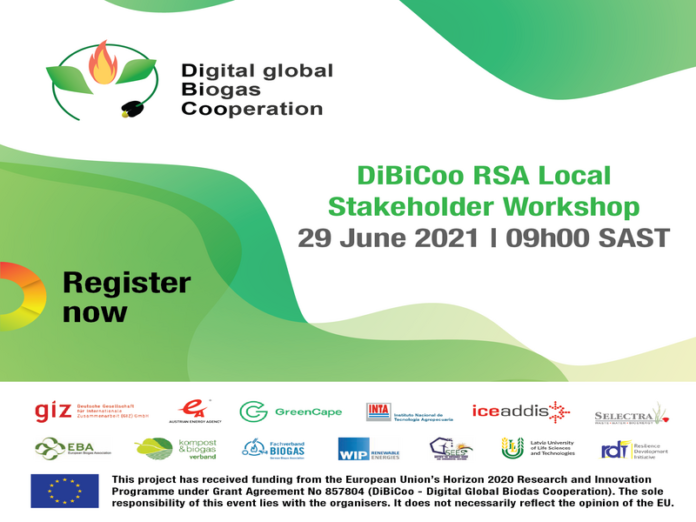The millions of tons of organic waste on the continent could become a valuable and viable source of green energy by turning it into biogas, and at the same time, reducing the carbon footprint and environmental and climate impacts of conventional coal-fired electricity.
Biogas is the mixture of gases produced by the breakdown of organic matter in the absence of oxygen (anaerobically), primarily consisting of methane and carbon dioxide. Biogas can be produced from raw materials such as agricultural waste, manure, municipal waste, plant material, sewage or food waste. – Wikipedia
In South Africa alone, according to the government’s 2020 State of Waste Report, the country generated approximately 55.6 million tons of waste in 2017, of which just more than a third was organic. South Africa’s National Waste Management Strategy aims to have 40% of biogas produced from organic waste by 2025, this strategy and regulatory framework is expected to be finalised in 2021.
Have you read?
Is there renewed hope for biogas projects in South Africa?
Many local government structures, municipalities and businesses have expressed interest in waste-to-energy technologies and information on how to set up such plants, as there is an increasing need to secure and reduce their energy demand, be more water-efficient and reduce their waste stream, particularly as the space for landfills is drying up. Biogas and biomethane technologies could be one way for them to address these needs.
EU’s DiBiCoo project to share know-how
GreenCape is presenting a workshop with practical information and advice on Tuesday, 29 June 2021, at 09h00 SAST, as the South African implementing part for the EU H2020 research and innovation funded DiBiCoo project (Digital Global Biogas Cooperation). GreenCape is facilitating cooperation between stakeholders in Europe who are eager to share their waste-to-energy know-how and technologies with developing and emerging countries. In the European Union, biogas plants already have an installed electric capacity of 11GW, with Germany leading the sector worldwide.
On the African continent, South Africa, Ghana and Ethiopia have been selected to be part of this project as these countries have a high market potential for biogas projects, along with the potential to develop a favourable regulatory environment and support schemes.
The aim of the DiBiCoo project is not only to share information on available European technologies, but also on the framework conditions, market opportunities, research needs, financing opportunities and potential ideas for projects. GreenCape will also assist in developing digital support tools for capacity building, networking and dissemination of online information to facilitate technology exports and act as a database for interested stakeholders.
The programme for the upcoming Digital Global Biogas Cooperation workshop will include the following biogas industry experts:
- DiBiCoo overview:
Ann-Kathrin van Laere, DiBiCoo Project manager, GIZ* - South African biogas context:
Alberto Borrello, Secretary-General, South African Biogas Industry Association - South African biogas market barriers:
Yaseen Salie, bio-energy analyst, GreenCape
*GIZ supports the German Government in achieving its objectives in the field of international cooperation for sustainable development.
- Breakaway sessions facilitated by:
- Dwight Rosslee, director, Selectra
- Mandisa Mkhize renewable energy sector desk, GreenCape
- Tawanda Sango, circular economy analyst, GreenCape
The workshop culminates in:
- DiBiCoo online platform presentation:
Aleksejs Zacepins, scientific project manager, DiBiCoo Project at Latvia University of Life Sciences and Technologies - Plenary discussion on breakaway sessions with Q&A session:
Facilitated by Jack Radmore, energy programme manager, GreenCape
Attendees will be able to interact with the presenters during the live session to gain a better understanding of the biogas market landscape and provide feedback and insight on their own experiences related to the content presented.
DiBiCoo workshops dates, times and registration:
Tuesday, 29 June 2021:
07h00—10h00 GMT | 08h00 to 11h00 London | 08h00 to 11h00 Lagos | 09h00 to 12h00 Johannesburg |10h00 to 13h00 Ethiopia | 07h00 to 10h00 Ghana
Wednesday, 20 October 2021:
07h00—10h00 GMT | 08h00 to 11h00 London | 08h00 to 11h00 Lagos | 09h00 to 12h00 Johannesburg |10h00 to 13h00 Ethiopia | 07h00 to 10h00 Ghana
The workshop will be broadcast live on the leading energy industry digital platform, Enlit Africa-Connect. TO REGISTER FOR FREE, click here.
